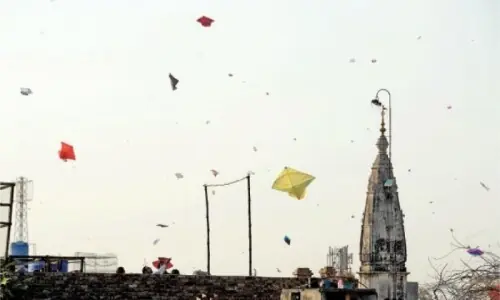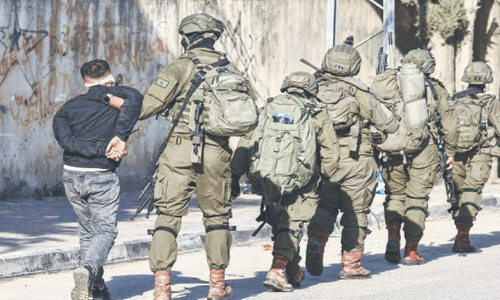The ICC World Cup is just round the corner and the Pakistan team is preparing hard for the tournament which will be jointly held by Australia and New Zealand from next month.
The World Cup, undoubtedly, bears the status of being the ‘king’ of all events and the winner rules the cricketing world for four years as world champion before the next edition is held. The experience of being in the middle of mega events such as the Olympic Games, or the World Cups or the Asian Games is, of course, invaluable and one gets to learn so much which is equivalent to spending several years in the field of sports.
Recently, I got the chance to travel with the Pakistan blind team as media manager to the fourth Blind Cricket World Cup which was held in Cape Town, South Africa. Though much less in magnitude and fanfare, and lacking the enormous euphoria associated with the regular ICC World Cup, the blind cricket’s mega event still had its moments and was a great experience which I would like to share with the others through this article.
Firstly, I must elaborate a bit on the history of blind cricket for the benefit of the readers. While the blind cricketers in Pakistan, India, South Africa, England, Sri Lanka and other countries had been playing regular matches over the past many years, it was in 1997 that a formal association – World Blind Cricket Council (WBCC) - was established to officially manage its affairs and organize tournaments.
The current WBCC chief is Syed Sultan Shah of Pakistan who is heading the organization for a one-year term. Before him, India’s George Abraham, Australia’s Peter Donovan and England’s David Tonley have remained at the helm of WBCC and looked after the game quite well during their tenures.
The inaugural Blind Cricket World Cup was played in New Delhi, India in 1998 which was won by South Africa who beat a spirited Pakistan side in the final to clinch the title.
The second edition, too, was held in India at Chennai where Pakistan tigers lifted the title after beating holders South Africa comprehensively. Pakistan were conferred the honour to host the third Blind World Cup in Islamabad in 2006 where they successfully defended their title, beating India in the final under the leadership of Aga Shaukat-Ali, the founder of Pakistan Blind Cricket Council.
For various reasons, there was a yawning gap of almost eight years in the staging of the fourth edition which was finally organized in Cape Town last November and was won by India after a thrilling contest with Pakistan in the final.
Apart from Pakistan and India, blind cricket teams from hosts South Africa, England, Sri Lanka, Bangladesh and Australia took part in the competition.
Here, I would also like to mention for the readers’ interest the three categories set for blind cricketers to qualify as players in national and international matches. The first category is B1 for the completely blind, B-2 for the players who could see up to four meters and the last being the B-3 category for players whose vision allows them to see up to seven meters in distance. For the B1 category players, the law says that every run scored by them is counted as two due to their severe handicap.
On the eve of the Pakistan team’s departure for the World Cup, the Pakistan Cricket Board (PCB) held a reception in the team’s honour in Lahore where Chairman Shaharyar M Khan met the squad and assured full support and encouragement to the blind cricket players.
The 17-member squad, led by Zeeshan Abbasi, then left for South Africa with four officials also accompanying it. When we reached Cape Town, we instantly fell in love with the beautiful city. Besides the many breath-taking locales, the city has lovely beaches, islands and landmarks including the Table Mountain which must rate among the wonders of the world.
The Blind Cricket World Cup was to originally commence from Nov 27 but the world of cricket was rocked that day by the tragic news of the death of Australian player Phil Hughes who succumbed to head injuries at a Sydney Hospital after being hit by a bouncer in a Sheffield Shield game.
The tournament organizers immediately announced that all matches on the inaugural day have been postponed to observe Hughes’ mourning and the World Cup will officially begin from Nov 28. It was a great gesture on their part and all of us really appreciated it. Later the same afternoon, all the competing players and the team officials gathered at the Wally Wilson Cricket Ground in a quiet ceremony to pay tribute to the late Aussie player. The ceremony was also attended by World Blind Council President Sultan Shah and head of Blind Cricket Australia Ray Moxley among other dignitaries.
The tournament started the next day with Pakistan facing arch-rivals India in the opener at the Gary Kirsten Oval. The Greenshirts played some dashing cricket to get the better of the Indian team with an emphatic 7-wicket victory. It was a moment of pride and joy for all of us as the team really got a huge boost from that win. In the World Cup games that followed, Pakistan went from strength to strength, beating all the leading teams including South Africa, England, Sri Lanka and Australia quite convincingly.
Friday, Dec 5 was a rest day before the semifinals and the Pakistan contingent made most of the off day to scale the length and breadth of Cape Town and meet local people. All of us first offered the Friday prayers at the imposing Jamia Masjid which is situated in the heart of the city. Later on, the players mingled with the Pakistani community and clicked numerous photographs with them around the city.
In the afternoon, a special visit to ‘Robben Island’ was arranged for the Pakistan blind cricketers. This was the place where the legendary Nelson Mandela had spent almost two decades as prisoner and freedom fighter. It was a memorable trip, indeed, and an unforgettable experience for everyone present.
The Pakistan contingent also visited the famous shrine of Saint Syed Abdurrahman Motura who was brought to Cape Town as a political prisoner nearly 300 years ago and died here in exile. The South African Muslims consider his shrine a symbol of the triumph of truth over falsehood and liberation over oppression.
On Saturday, Pakistan thrashed England in the first semifinal while India beat Sri Lanka in the second to set up a mouth-watering clash in the final.
On the day of the final, the Wally Wilson Stadium was packed with the Indian and Pakistani fans. The Consul General of India in Cape Town, Puneet R. Kundal, was also present at the ground with his family to support his team for the big match.
It was a nerve-fraying final by all counts in which India emerged as the winners in the last over of the match. Indian skipper Shehkar Naik put Pakistan in to bat and the Greenshirts scored a very competitive 389 for 7 in the stipulated 40 overs with opener Mohammad Jameel scoring a brilliant century and Mohammad Akram a fluent 75.
India, however, was equal to the task and played very well on the day to emerge winner by five wickets on the second last ball of the innings. Indian batsmen, Prakasha Jayaramaiah scored 82 runs while Ajay Reddy made 74. It was a great effort from Prakasha who belongs to the B1 category of players and each run scored by him was counted as two as India raced to victory and snatched the World Cup title from Pakistan.
The Pakistan players were inconsolable that night, but the team officials, including myself, tried our best to calm them down. With great effort, we made them understand that they had fought valiantly and put in their best, but one team had to win and it was India on the day.
The success story of the Pakistan blind cricket team is a well-known thing and both fans and critics have lauded their rise in international cricket. After having watched them closely for several weeks, both on and off the field, I have no doubt in my mind that if they receive patronage and support from the govt, they will be unbeatable in world cricket and will surely bring back the trophy in the next World Cup.
Published in Dawn, January 16th, 2015
On a mobile phone? Get the Dawn Mobile App: Apple Store | Google Play



































